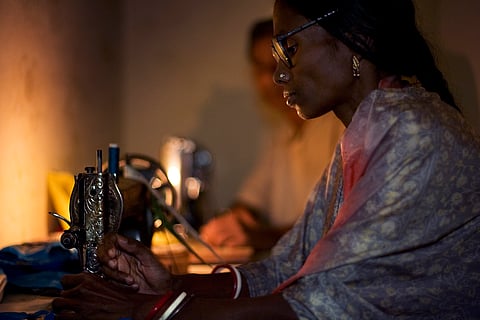When it comes to maternal and infant mortality rates, Tamil Nadu betters the national average by a large margin: its maternal and infant mortality rates stand at 90 and 21 respectively, almost half the national average of 178 and 40. Accompanied by a sex ratio of 996 with a female literacy rate of 74 percent (against the national rate of 65), these indicators make for a strong case for improved conditions for women in the state. However, the gender disparity in labour participation – the number of people employed or actively looking to work – in Tamil Nadu makes it clear that improvement on these other parameters have not translated to more women workers. One of the missing links here could be the lack of implementation of maternal entitlements of working women.
Take, for instance, K Kasthuri, a semi-skilled worker at a garment factory in Tambaram, a Chennai suburb. Whenever her four-year-old son falls sick, she faces the predicament of choosing between taking care of him and going to work. Usually, during her work hours she leaves her son at the creche at the factory, but not with absolute peace of mind since she grumbles about the lack of 'supervision' by the attendants. "The problem is that I have to take care of him and also go to work when he is ill. They don't grant leave if your child is sick and I can't afford to lose a day's salary," she says. Kasthuri's employers, like most in Chennai, take advantage of a system which does not penalise employers who do not provide enough safeguards for working women who are expecting or have a child.

